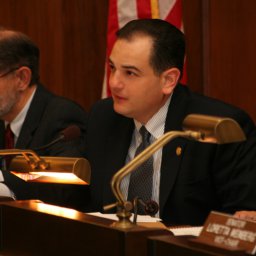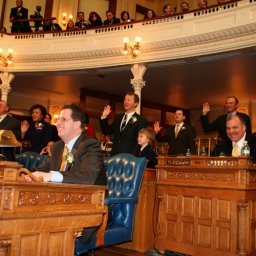Sponsor of ‘New Jersey Compassionate Use Medical Marijuana Act’ Says Proposed Regulations Run Afoul of Law’s Intent, Begins Process of Using Legislative Veto Power To Invalidate Rules
TRENTON – A measure sponsored by Senator Nicholas P. Scutari (D-Union) challenging the Christie Administration’s proposed rules for implementing the state’s medical marijuana law was approved today by committees in the Senate and Assembly, setting it up for a vote by the full Legislature.
The bill (SCR-130/ACR-151) is the first step in a legislative process that would invalidate the regulations as proposed and, ultimately, require the administration rewrite them to bring them in line with the Legislature’s intent in creating the ‘New Jersey Compassionate Use Medical Marijuana Act.’
“Our intent was to create a program that gives patients suffering with debilitating illnesses a small measure of relief from their pain through the medicinal use of marijuana. The proposed regulations would make that virtually impossible,” said Senator Scutari, prime sponsor of the ‘New Jersey Compassionate Use Medical Marijuana Act.’ “This bill begins the legislative process of invalidating the regulations and requiring the administration to rewrite them in a way that actually complies with state law.”
The measure seeks to address four key areas of the proposed Department of Health and Senior Services regulations that are inconsistent with the intent of the law and, in practice, would severely restrict or entirely prohibit access to medical marijuana by patients suffering with debilitating medical conditions.
The Senate Concurrent Resolution would challenge the provisions:
• Requiring that a physician certify that conventional medical treatments are exhausted before patients are eligible to access medical marijuana. The law signed early this year requires that only patients with certain conditions – seizure disorder, intractable muscle spasticity and glaucoma – be resistant to conventional medical therapy to qualify.
• Calling for two categories of medical alternative treatment centers – those to be used exclusively for cultivation, and those specifically to dispense marijuana. The law called for a sufficient number of ATCs throughout the state – at least two in each the northern, central and southern parts of the state. The exclusivity of the ATCs would severely limit accessibility; the administration has already stated its intention to initially allow for only four distribution centers and two cultivators, though it has provided for the establishment of four satellite centers.
• Establishing an arbitrary limit on the permissible levels of delta-9-tetrahydrocannabinol (THC) that medical marijuana may contain, making New Jersey the only state with a medical marijuana program that has sought to do this.
• Unnecessarily delaying the consideration of adding other medical conditions and treatments for the program, by requiring the Commissioner of Health and Senior Services to wait until the department has completed at least two annual reports on the law to the Governor and the Legislature. The law did not include such limits.
Senator Scutari added that the Administration does not have to wait for the Legislature to veto the regulations to comply with state law, and urged the Department of Health and Senior Services to immediately begin the process of amending the rules.
“Sick and dying patients have already waited far too long for relief,” added Senator Scutari. “It is my hope that before we finalize this process, the administration will take the initiative to reissue regulations that are in line with the Legislature’s intent so they do not create any further delay.”
The measure approved today is the first step toward exercising legislative veto power, constitutional authority voters granted the Legislature in 1992. The amendment to the State Constitution gave the Legislature the ability to invalidate rules and regulations if the Legislature finds them to be inconsistent with its intent in creating the law. If approved by the full Legislature, the resolution would give the Administration 30 days to withdraw or amend the regulations. If the Administration does not withdraw or amend the regulations, either house of the Legislature would hold a public hearing on the invalidation or prohibition of the regulations. A transcript of the public hearing would be placed on the desks of each member of the Legislature. No sooner than 20 days after the public hearing transcript is placed on legislators’ desks, the full Legislature could adopt a second resolution to invalidate the regulations.
The bill cleared the Senate Health, Human Services and Senior Citizens Committee by a vote of 6-1. An identical version of the measure was approved by the Assembly Regulatory Oversight and Gaming Committee.



